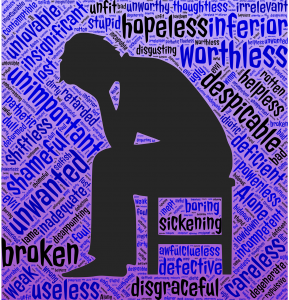
With few exceptions, everyone I have worked with during my career as an Autism Spectrum Disorder (ASD) psychologist has brought to my attention, in one way or another, the presence of a persistent and enduring feeling of helplessness. It appears to be a core feature of this condition, but one that is often invisible, even to those with intimate knowledge of the person, and in many cases to the people themselves with ASD.
What do I mean by helplessness? It is the belief that events in life are not determined by one’s own actions, they are caused instead by outside influences over which one has no control. Negative events, in particular, are assumed to be one’s own responsibility rather than being caused by external causes.
The feeling of helplessness comes from imagining that bad outcomes are brought about by one’s own actions whereas good outcomes are the result of other causes. In essence, one is helpless to make good things occur and unable to prevent bad things from happening.
Why is this especially true of adults with Autism Spectrum Disorder? For one thing, by definition, they have poor social skills and trouble communicating effectively. Their experiences interacting with others tend to be unsuccessful, frustrating and disturbing, leading to an abundance of negative experiences and few positive ones. Because it appears to them that their communicative and social skills are core aspects of who they are, they see these repeated negative experiences to be beyond their control. Lacking a sense of control over one’s life leads directly to the presence of helplessness.
The Permanency of Helplessness
Helplessness is not caused just by the feeling of being unable to control what happens in one’s life. It requires also the assumption that this lack of control is permanent. Given that Autism Spectrum Disorder is considered by experts to be a neurologically based life-long condition, it is no wonder that adults with ASD generally think of their lacking control over social success to be perpetual.
I cannot emphasize enough how debilitating it is to think of one’s difficulties in life as permanent. How can one be happy and content if it is assumed that unhappiness is the direct result of one’s own actions which are permanent and over which one has no control? Sadly, this a core belief of so many adults with ASD, one that appears to them as real and true as the sun rising in the east.
Can One Change Helplessness?
In a word, yes. Autism Spectrum Disorder may indeed be neurologically based and thus set in motion in the earliest stages of life, but that doesn’t mean it can’t change. Research has shown conclusively that emotional experiences, as well as exposure to new and different ways of thinking, can change brain structure and function. Little about the mind is permanent. One does not have to assume that unwanted outcomes in life are forever lasting because hardly anything is permanent, including the consequences of ASD.
Nor is it necessary to assume that one’s actions are unmanageable because they stem from a condition we call Autism. All of us, excepting those with extraordinary and uncontrollable medical conditions, are free to think and behave as we choose. Our lives are the direct result of personal responsibility and the outcomes of our choices are entirely within our control.
Autism Spectrum Disorder may present challenges to those who live with it but helplessness need not be one of them.
